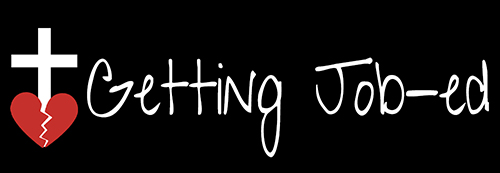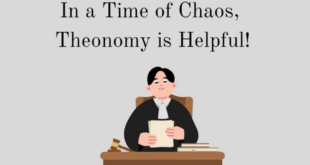All Scripture is breathed out by God and profitable for teaching, for reproof, for correction, and for training in righteousness, that the man of God may be complete, equipped for every good work. 2 Timothy 3:16-17 ESV
For the word of God is living and active, sharper than any two-edged sword, piercing to the division of soul and of spirit, of joints and of marrow, and discerning the thoughts and intentions of the heart. Hebrews 4:12 ESV
Heaven and earth will pass away, but my words will not pass away. Matthew 24:35 ESV
The grass withers, the flower fades, but the word of our God will stand forever. Isaiah 40:8 ESV
A major issue that sparked the Reformation was the concept of authority and truth. The Roman Catholic church, at that time, stated that Scripture is authoritative. However, the Roman Catholic church also asserted that their stance on issues and their directives was truth as well. In other words, Scripture and the church were both equally authoritative in regard to matters of truth.
That seems like it wouldn’t be a big deal until they begin to contradict each other. For instance, when discussing the matter of salvation of a person, “what does it take to go to heaven?” Scripture teaches, “For by grace you have been saved through faith. And this is not your own doing; it is the gift of God, not a result of works, so that no one may boast” (Ephesians 2:8-9 ESV, this is also seen throughout the book of Romans and Galatians). At that time, the Catholic church taught it was actually faith plus works that justify someone in the sight of God. See the issue here? We have a conflict, a contradiction. Now, someone’s authority steers the ship. There is only one true authority and the other one is subordinate.
The Word of God
The issue is that we need authority and truth in our life. We need an objective standard that calls the shots. In the Catholic church and in society in the 1500’s, the church’s authority ultimately called the shots. I’m not as well versed in Catholic teaching of today, so I’m not sure where they stand now, but I do understand they have gone through their own reformations within their church history as well.
But what does this look like today in our day and time, our cultural setting? Existentialism, post-modern thinking, and relativism call the shots. They say there is no objective reality, no ultimate truth. Everyone’s truth is a truth, but there is no ultimate truth. This sounds good and humble but is actually insubordinate to an Ultimate Reality. This ultimately says “I’m the king, and I call the shots.” The results in the world have been devastating.
You can see how quickly this becomes a problem too, can’t you? Our culture preaches about not offending anyone and it’s about other people’s rights and on and on and on… Then an authority steps in and dictates truth and everyone submits. Remember the events in the last couple of years when people were losing their jobs on account of religious convictions with something that contradicted the government? (Check out the film Essential Church on this topic, it’s incredible) Hardly anyone cared about relativistic ideals at that time. That’s how quickly relativism gives rise to dictators and tyrants (on that note, isn’t it amazing how fast that has fallen from our minds?). We need an ultimate authority. We always submit to an authority.
This is a lengthy quote, but one that I think really drives home the point. John Piper stated:
“This is a quote from Michael Novak, which I found provocative when I read it 13 years ago. It’s still true today.
“‘There is no such thing as truth,’ they teach even the little ones. ‘Truth is bondage. Believe what seems right to you. There are as many truths as there are individuals. Follow your feelings. Do as you please. Get in touch with yourself. Do what feels comfortable.’ Those who speak this way prepare the jails of the 21st century. Those who undermine the idea of truth do the work of tyrants.”
Now, I wonder if you understand why he said that, if you feel the immediacy of the rightness of that conclusion about truth deniers — that they prepare the jails of the 21st century and that they do the work of tyrants — why? Here’s why: If there is no absolute truth functioning as the arbiter that two people in an argument with each other can appeal to, there’s only one appeal left: power. And therefore, might will make right. That’s the definition of a tyrant. There is no alternative. You better hope that all those loosey-goosey, mushy Christians that talk in vague, hazy terms about propositions being old-fashioned, enlightenment ways of doing truth better do not carry the day.
They prepare the jails that tyrants will put you in when you claim that it’s wrong to put you there for just believing what you believe. And they will say, ‘Who are you to say what’s right and wrong? What’s right to me is right to me, and I’ve got the sword.’ You don’t want to go there. Don’t play, students, in the university with epistemology. Don’t play games with epistemology.
Huge things are at stake in how you view whether there is such a thing as truth or not. We’re not playing games. This pays a price. If you have to know two centuries of history, know the first and know the 20th; know Christ and know the Gulag; know Hitler, know Mussolini, and know Stalin. Don’t be ignorant of what price has been paid for those who think they can call the shots without submitting to any absolute truth. Know at least two centuries, because the 20th was the worst and the first introduced the best. (1)
Conclusion
Authority and objective truth are so essential. Scripture affirms itself as the very Word and breath of God Himself. This was incredibly important to the Reformation, and I would say it’s equally if not more important today. We need something sure-footed and concrete to stand on in these fickle and shaky times. What do you deem as the ultimate authority in your life?
-Austin
Bibliography
Piper, John, “Why We Believe the Bible: Session 1,” accessed October 14, 2023,
https://www.desiringgod.org/messages/why-we-believe-the-bible-session-1
 Getting Job-ed
Getting Job-ed


